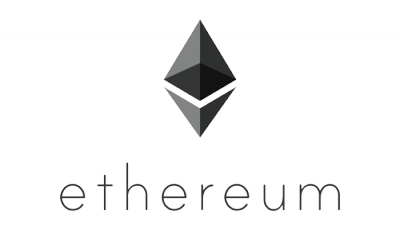Greek debt crisis fuels speculation about digital currency adoption
In the days leading up to and following the Greek referendum in which residents voted a resounding “no” against austerity measures being pushed by creditors, there has been a lot of coverage in the media about the rise of Bitcoin’s price in correlation to the events in Greece, along with the digital currency’s increasing adoption in the beleaguered European nation, and speculation about whether Greece could benefit from using digital currency.
International Business Times UK (IBTimes UK) reported Monday that Bitcoin’s price reached a four-month high on Sunday at $273, as news broke that Greeks voted against the terms of a global bailout.
IBTimes UK noted that other digital currencies also saw significant increases in price, in particular Litecoin, whose value rose by 17% in a 24-hour period. This followed a month-long trend in gain, with its market cap increasing from $70 million to $195 million in just 30 days.
 In an article about Bitcoin’s rally amid the financial crisis in Greece, Sky News pointed to discussions on Reddit’s Bitcoin forum about the effects of the events in Greece on Bitcoin.
In an article about Bitcoin’s rally amid the financial crisis in Greece, Sky News pointed to discussions on Reddit’s Bitcoin forum about the effects of the events in Greece on Bitcoin.
The news outlet said cryptocurrency expert Vitalik Buterin wrote on Reddit that purchasing Bitcoin was a good way to store value in tumultuous times. “Sell it two year later when (the theory goes) your euros are down 30% from a haircut or down 40% from force-conversion into drachmas and your politically invulnerable cryptotokens are scott-free,” wrote Buterin.
Other users on the forum acknowledged Bitcoin’s volatility; one Redditor by the name of “bontchev” said: “The average Greek will have to decide: bet on cryptotokens that have demonstrated their ability to fall by 80% in a year, or bet on euros that haven’t done so yet?”
Prior to the referendum, Reuters reported that some Greeks are flocking to Bitcoin to circumvent capital controls designed to prevent citizens from transferring money out of their bank accounts.
The news agency reported that new customers depositing at least €50 with BTCGreece – the only Greek-based Bitcoin exchange, open only to Greeks – increased by 400 percent between May and June, according to founder Thanos Marinos, who put the figure at “a few thousand.” The average deposit quadrupled to approximately €700.
One incentive to using Bitcoin is to get money out of Greece, something the capital controls are designed to prevent.
“When people are trying to move money out of the country and the state is stopping that from taking place, bitcoin is the only way to move any value,” said Adam Vaziri, a UK Digital Currency Association board member, to Reuters. “There aren’t any other options unless you buy diamonds, and that’s very difficult to move.”
Marinos, BTCGreece’s founder, told Reuters that Bitcoin buyers’ main goal is to protect their money against the prospect that Greece might exit the euro zone and convert all deposits in Greek banks into a highly devalued national currency. The news agency said that if voters rejected creditors demands (which they did), this would become much more likely.
“A lot of people are keeping all the bitcoins they buy on our platform, until they understand what to do with them” said Marinos. “In their eyes, now they have bitcoins, they’re safe.”
Reuters also pointed to Bitcoin’s volatile nature; the digital currency peaked at more than $1,200 in late 2013 before plummeting nearly 70 percent in less than a month following the hacking attack on the Mt. Gox Bitcoin exchange in early 2014, which later collapsed.
Most Bitcoin watchers figure the digital currency’s rally is mostly due to speculators betting that capital controls would spur significant demand, said Reuters, which noted that in the spring of 2013, when Cyprus cracked down on bank withdrawals, Bitcoin leapt nearly 700 percent.
Reuters reported that on June 20, Greece got its first Bitcoin ATM, located in a family-run bookstore in the Athens region. A shop employee said there had been some limited interest in the machine before Saturday when negotiations with creditors broke down. With Greeks standing in long lineups at bank machines to access the imposed €60 daily withdrawal limit, “there has literally been zero interest” in the Bitcoin ATM since Saturday, “when all hell broke loose,” said the employee.
Still, many Greeks are seeking alternatives to euros. IBTimes UK reported that Vaultoro, an online Bitcoin and gold exchange, recently disclosed it had recorded a 124% increase in deposits from users with a Greek IP address.
“Some people aren’t waiting for the government to figure out an exit plan and are doing it for themselves,” said Vaultoro founder Joshua Scigala to Reuters, as reported by IBTimes UK. “You have people worrying about their family’s wealth or their life savings, and worrying that their money might be locked in banks. They’d rather hold money in a private asset like gold or bitcoin.”
In a recent interview with IBTimes UK, Bitcoins Greece founder Elenu Varela said, “During times of economic uncertainty, people invest in safe havens such as gold. Nowadays, digital assets like bitcoin have joined that asset class. Because cryptocurrencies are global and do not rely on a healthy banking system, it is logical for people to stockpile them in times of uncertainty.”
Speaking with Bloomberg’s Emily Chang on Bloomberg West, Peter Van Valkenburgh, director of research of Coin Center, talked about speculation regarding Bitcoin’s rally amid Greece’s economic woes.
“When you see something in the news like sovereign debt crisis you start to look at other assets as a way to secure your money,” said Van Valkenburgh. “If you’re in Greece you don’t have that option because your bank account’s locked, you have sixty [euros] a day cap, so I don’t think we’re seeing a lot of capital move into Bitcoin from Greece itself but it think if you’re in a neighboring state, a state that also has a debt problem like Portugal or Ireland you’re thinking, ‘Hey, maybe I should diversify my investment, maybe I should stay away from treasury or things like that and I should consider Bitcoin.’ But that’s really a speculative move. That’s a thought that ‘OK, this is an option outside of my other investment vehicles.’ It’s not an escape.”
Van Valkenburgh suggested just a small amount of one’s portfolio in such as speculative investment, but acknowledged that Bitcoin is good for serving as a rail for cross-border payments.
In studio with Chang, Sonny Singh, chief commercial officer at BitPay, noted the challenge of Greeks obtaining Bitcoin, agreeing with Van Valkenburgh that a lot of the money being spent on Bitcoin is outside Greece, as neighboring countries and others are watching the situation there and considering adding Bitcoin to their asset class.
Asked whether it would be far-fetched for Greece to adopt Bitcoin should it drop the euro, Singh said Greece should look at Bitcoin as a way to complement whatever currency the country installs. For Van Valkenburgh, it’s a matter of usability; Bitcoin has to be accessible to the kinds of people harmed by what’s happening in Greece, such as pensioners. “As far as being adopted as a national currency, I think it’s going to be hard enough setting up a bootstrap system of IOUs or maybe a new drachma. I don’t think you want to add cryptocurrency or cryptography into the mix,” he said.
Singh agreed, adding that Bitcoin has a lot of uses for Greece but the digital currency has to be made easier and readily accessible for Greeks. He said if he were in Europe or South America he’d have a certain amount of his asset class in Bitcoin to prevent against his local currency going up and down so much.
There is also speculation whether Greece would adopt a parallel digital currency in order to solve its financial crisis. Forbes wondered in an article whether a parallel currency could be the answer.
On this matter, Lee Gibson-Grant, founder of the UK-based digital currency consultancy Coinstructors and the Drachmae Project, recently met with the mayor of Agistri, a Greek island with a population of about 1,000 people. Forbes reported that the mayor had agreed to allow testing of blockchain technology so local businesses could develop a loyalty program, allowing tourists to book hotels and other services at discount.
The initiative could be applied throughout Greece, and Gibson-Grant suggested the idea of a parallel digital currency for the country. “A digital currency over the Blockchain would be ideal right now for Greece and tourists,” he said to Forbes, which noted that with Greece having attracted record international visitors of more than 20 million last year and this influx contributing 18 percent to the country’s GDP, the stakes are high.
The magazine noted that matters have become desperate since the single ATM on Agistri ran out of funds a week ago. Having spent the past few months in Greece, Gibson-Grant resorted to taking a ferry from Agistri to Athens and wait in lines to withdraw money from four different ATMs.
“I would suggest to the Greek tourist industry that they study the tried and tested benefits of M-Pesa, a mobile-phone based money transfer and micro-financing service, and create a network that supports an asset-backed currency,” said Gibson-Grant to Forbes, which noted the currency could be backed by gold, silver, or an array of assets. Local businesses could adopt the currency as they become a services provider to tourists, who could purchase digital tokens that would be accepted as a store of value. This would avoid the chaos surrounding Greek banks. While the country has stressed that tourists are exempt from cash withdrawal limits, the fees and exchange rate levied are excessive by any standards, said Forbes.
A parallel currency also offers what Gibson-Grant calls “a unique way to harness the country’s wealth and at the same time remain within the legal obligations Euro membership entails.” On his mission to Agistri Gibson-grant sought to find the project outlines of blockchain solutions for Greece.
Forbes reported that the digital currency could be based on Greece’s infrastructure assets, which are estimated to be ranked seventh in the European Union. By monetizing such assets into digital currency, the government could pay public servants and pensioners through the blockchain.
Gibson-Grant told the magazine he feels Agistri is the “perfect testing ground” for a new technology using the NXT 2.0 blockchain and the functionality of the SuperNET to offer a hybrid ecosystem and marketing tool to the global marketplace. The hope is that is should boost tourism by providing discounts to tourists who use it and “demonstrate what Blockchain technology can do in a real case scenario.”
In this contained testing environment, a loyalty token – valued at €1 apiece – can be used by tourists who access it through membership with the Drachmaeconnect.com business networks. Discounts of up to 90 percent can be attained depending on the owner’s discretion. A couple of businesses have already registered.
Forbes reported that this initiative represents the first time the blockchain has been put to use in this manner, but it remains to be seen whether individuals will adopt the technology and benefit from the offered discounts – creating a template that could be used on a country-wide scale. A key factor determining the project’s success will be if people are to accept it in return for goods and services.
Gibson-Grant told Forbes that given Greece’s current situation, the country has no choice but to develop a parallel currency to remove stress of requiring bailouts, but the matter at hand is how and would it be paper or digital. Digital currency would take far less time and be easier to roll out alongside an existing currency than a paper parallel currency. Gibson-Grant said, “Being digital the network would calculate the exchange to Euro, so the merchants do not even need to worry about listing two prices since it will be internally automatically.”
The magazine said a government-issued digital currency would not be valued as it would still be the same as paper currency, but just less expensive and easier to rollout. While it will always be an “IOU” and not trusted by Greeks or the global community, it has benefit in that it can solve problems in pension and tax systems.
The biggest issues to have when creating a parallel currency are based on who the issuer is and who actually controls the ledger. “If we look at the Blockchain technology, it could be Bitcoin or NXT 2.0 Blockchain technology as it is decentralised – therefore creating a currency over the top free from Government control and interference,” said Gibson-Grant.
With a ledger, all transactions are public and completely transparent, which gives the public access to see what the government is doing with the funds. It also gives guidelines to counteract and mitigate fraud and corruption.
With respect to tourism, a system in which tourists could buy a digital currency through a card and then sell anything on it they have remaining without losing money makes sense in light of the current situation and also reduces the risk of carrying too much cash.
“The core element is based on adoption and this is resolved by using the M-Pesa point of Location model in which business can become verified to now accept the currency as payment, but cash in and out location in which they would earn [a] 2% fee for doing so and the network would charge a 1%,” said Gibson-Grant to Forbes.
That 1% fee would go toward the pot of buying more assets to keep the currency value growing based on transactions carried out. The more the currency is adopted and the greater the number of transaction, the more it would bring economy growth to the market cap of the currency and foster confidence in the currency.
A crucial element is to use blockchain technology that has core functions and enables currency holders to vote for what assets they wanted added to basket. Gibson-Grant said the ideal technology would be NXT, which is the first stand-alone written from scratch other than Bitcoin, as it has built-in functions for voting so everything can be public and transparent.
But the overall outcome of this, said Forbes, is an asset-backed currency that is acceptable for paying taxes and government salaries; doing so would reduce the government’s liquidity problem.
In a press release, Alan Yong, co-founder of DNotes – an open-sourced, decentralized digital currency, weighed in on the issue of Greek government issuing its own digital currency:
“What Greece needs, is to adopt a global digital currency that is built with trust and integrity for everybody worldwide, so that anyone may participate regardless of financial or economic standing. If Greece chooses to return to a national currency like the drachma, or government backed digital currency, it is unlikely that currency would have much value outside of Greece. Greek citizens will fear that the new currency will be worth much less than their current eurodeposits, and this will be counter-productive to preventing further bank runs. I believe that a digital currency that has its value set globally is the solution; a currency that remains stable regardless of local political turmoil. DNotes is that currency.”
Passionate about developing an international digital currency, Yong envisions every Greek citizen being their own bank by taking advantage of digital currencies such as DNotes to prevent another situation in which individuals are unable to access their savings.
“By making Greece the most regulatory friendly nation and the first to adopt global digital currency, Greece could be positioned to reap the immense benefits of Blockchain technologies and become the envy of other nations,” said the press release. “It will be the catalyst of job creation and a huge draw for foreign investment. This will be a much better solution than any conceivable political solutions.”
Meanwhile, there are reports that Yanis Varoufakis, who stepped down as Greece’s finance minister on Monday, was pushed out of his position after he told a reporter that Greece could introduce a parallel currency in the coming weeks.
Business Insider pointed to an interview Varoufakis had with Ambrose Evans-Pritchard of The Telegraph over the weekend in which he suggested the possibility of a parallel currency. The Telegraph reported, “’If necessary, we will issue parallel liquidity and California-style IOU’s, in an electronic form. We should have done it a week ago,’ said Yanis Varoufakis, the finance minister. California issued temporary coupons to pay bills to contractors when liquidity seized up after the Lehman crisis in 2008. Mr Varoufakis insists that this is not be a prelude to Grexit but a legal action within the inviolable sanctity of monetary union.”
Business Insider then referenced a Wall Street Journal article,which said Greek Prime Minister Alexis Tsparis was looking to replace Varoufakis for some time, given the finance minister’s poor relationship with his counterparts in Europe.
The Wall Street Journal reported, “Mr. Varoufakis’s popularity in Greece has deterred Mr. Tsipras from ousting him until now, these people say. But the premier reacted after Mr. Varoufakis told a U.K. newspaper late Sunday that Greece might introduce a parallel currency and electronic IOUs similar to those issued previously in California. Mr. Varoufakis quickly backtracked on his comments to The Daily Telegraph but his prime minister had had enough, say the people familiar with the matter.”
Business Insider said, “It’s just a report for now, but there’s no doubt that Varoufakis did alienate other European leaders, and talk of a coupon currency wouldn’t have been what Tsipras wanted as the country got ready for Sunday’s crucial referendum.”
Image credits:
Featured (and first) image – Ggia
/r/bitcoin image – Source
Peter Van Valkenburgh’s photo – Via Coin Center website (License)














